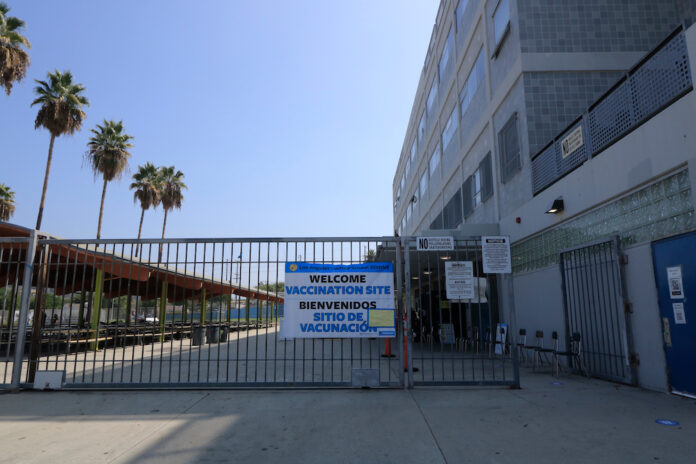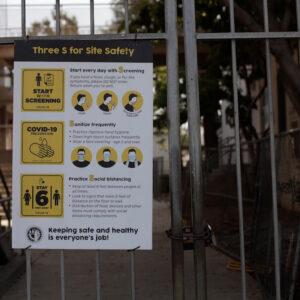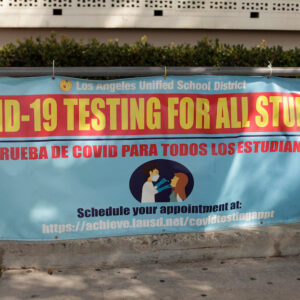
Los Angeles Unified School District (LAUSD) board voted unanimously Sept. 9 to pass a mandate that would require students in the district who are 12 years old or older to be fully vaccinated against COVID-19 by Jan. 10, 2022, unless they have approved medical or other exemptions. Select groups within LAUSD must have their first dose of vaccination by Oct. 3, 2021 — including all staff, faculty and students participating in extracurricular activities. LAUSD Interim Superintendent Megan K. Reilly said in the L.A. Times that students who are not fully vaccinated will not be allowed on campus past the January deadline.
Jackie Goldberg, representing NELA and District 5, is one of the seven LAUSD board members who voted to pass the mandate. According to LAUSD officials, about 35.6 percent of students ages 12 and older are currently unvaccinated. The board set out with the goal to increase vaccination rates, in order to make LAUSD campuses as safe as possible.
“Vaccinations have been required at schools forever — you can’t go to school without getting vaccinated for polio, for measles, for diphtheria,” Goldberg said. “We didn’t see this as really a far out thing to do.”
Goldberg said with the implementation of this mandate, she expects the vaccination rate to rise to 85 or even 90 percent within the school district.
An infectious disease expert, the college’s COVID-19 Policies Advisor Dr. Kimberly Shriner ’80 from Huntington Hospital in Pasadena, said while the vaccine mandate can be politically contentious, it is the right decision from a public health standpoint. Shriner said there has been an increase in pediatric COVID-19 infections and deaths due to the Delta variant of the virus. According to Shriner, consequences of a relatively low vaccination rate are currently manifesting in the American southeast, where hospitals and Intensive Care Units (ICU) are overwhelmed with COVID-19 cases.

Virginia Escamilla is the mother of a first year and senior at Eagle Rock Jr./Sr. High School (ERHS). Escamilla said her children got vaccinated as soon as the Food and Drug Administration (FDA) gave the emergency use authorization (EUA) for 12- to 15-year-olds to receive the Pfizer vaccine. Escamilla said she supports the mandate and she believes getting vaccinated is a public duty.
“This is beyond any individual rights or thoughts [individuals] have,” Escamilla said. “This is for the greater good.”
However, not everyone believes this mandate is necessary. Rocio Chavez is the mother of a 14-year-old and 17-year-old, both students at ERHS. Chavez is filing for a vaccine exemption on religious grounds. She said she feels that five to 10 years of trial and study should be dedicated to a vaccine before it becomes fully approved, but the development of COVID-19 vaccines took less than a year.
According to Shriner, part of the reason pharmaceutical companies have been able to study COVID-19 vaccines faster is that there is a large infected sample base in the U.S., which makes it convenient to test the effectiveness of a new vaccine.
“Most of the times, vaccines like measles, mumps, Hepatitis C, B or HPV, there’s not very much disease. So you have to accrue a large [diseased] population, it takes many years,” Shriner said. “When you have 100,000 cases a day, it’s very easy to assess the performance of a vaccine or medication.”
Shriner said she anticipates that by mid-October, the FDA may allow children as young as six years old to receive the Moderna and Pfizer COVID-19 vaccines, and by the end of 2021, there may be expanded coverage of these vaccines for 2-year-olds.

Prior to the vaccine mandate, LAUSD carried out weekly testing and masking policies, according to Chris Oswald, a kinesiology teacher at ERHS. These precautionary efforts are still in place now. Goldberg said it is certainly possible that if the district can achieve a high vaccination rate by the start of next semester, testing could be reduced in frequency, since it costs half a million dollars every week to conduct COVID-19 testing district-wide.
“We have UCLA, Stanford and John Hopkins advising us medically on everything we do,” Goldberg said. “We would like to reduce the amount of money we use for testing, and spend that money in reaching out further in the community. But we’re not going to do that until we get the kids to get vaccinated.”
![]()






























